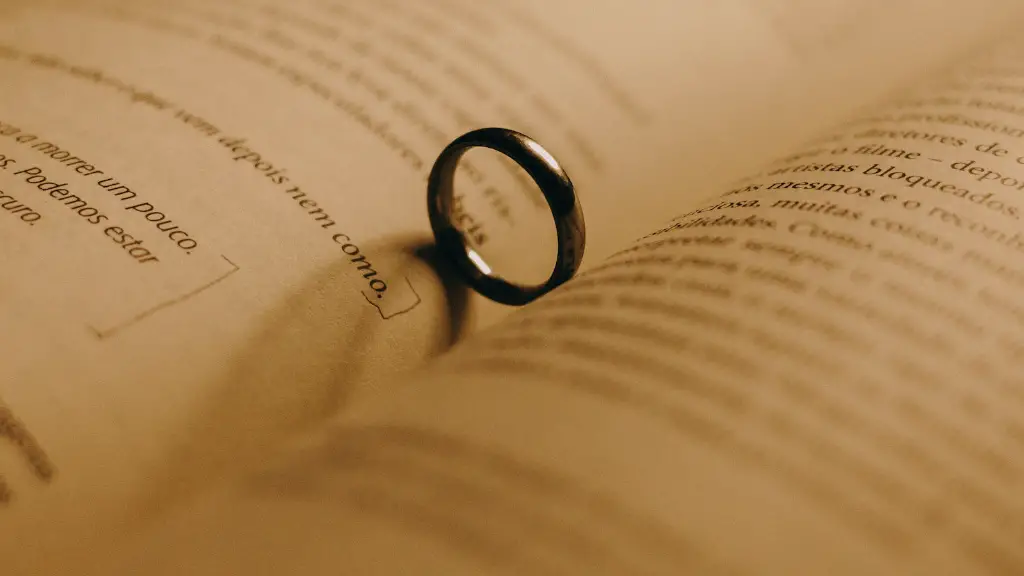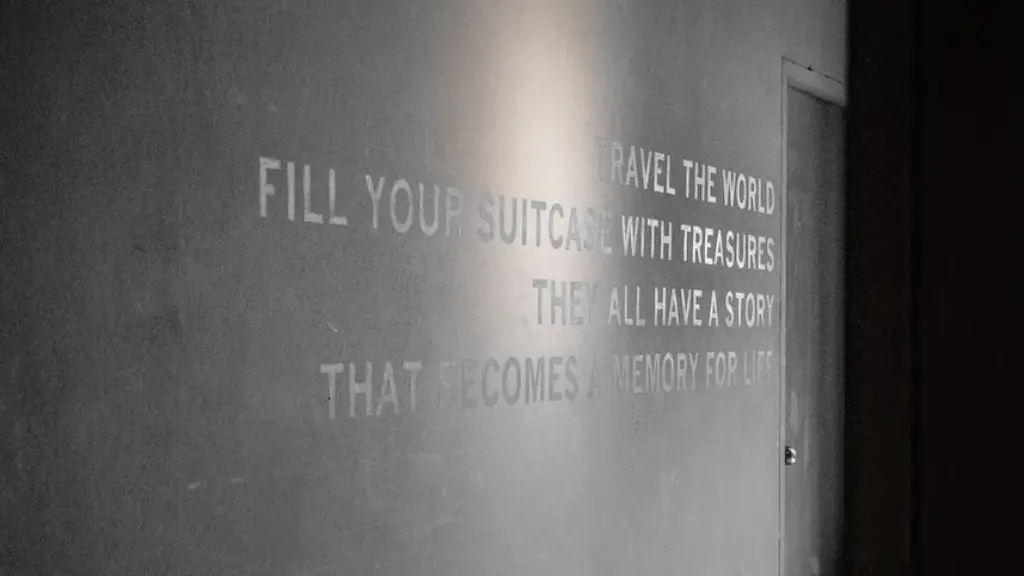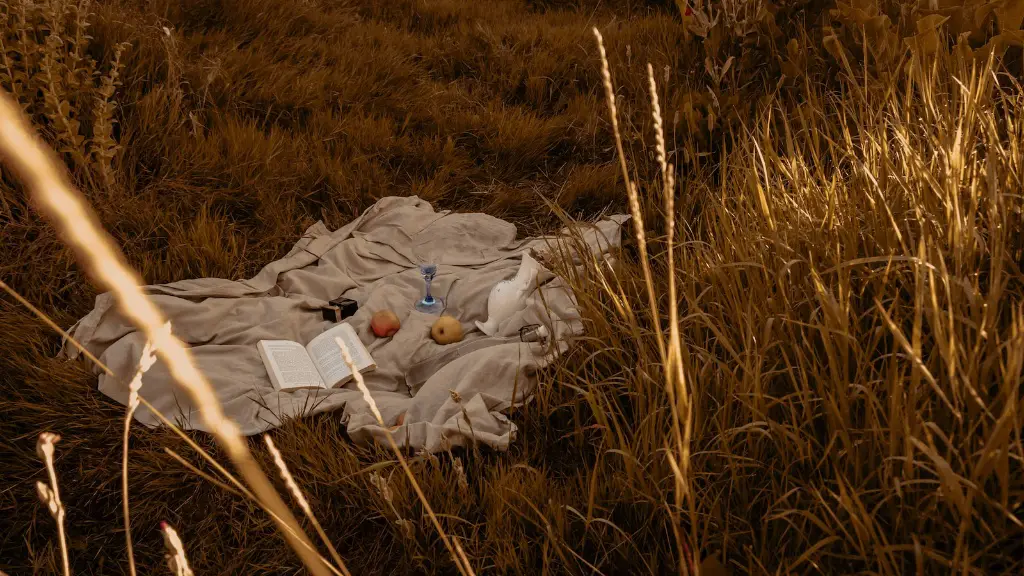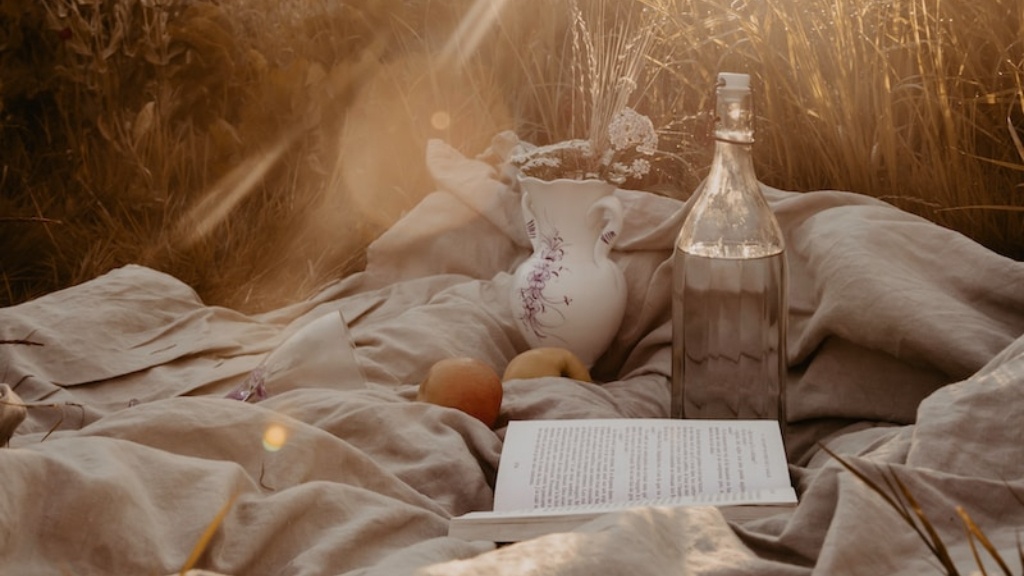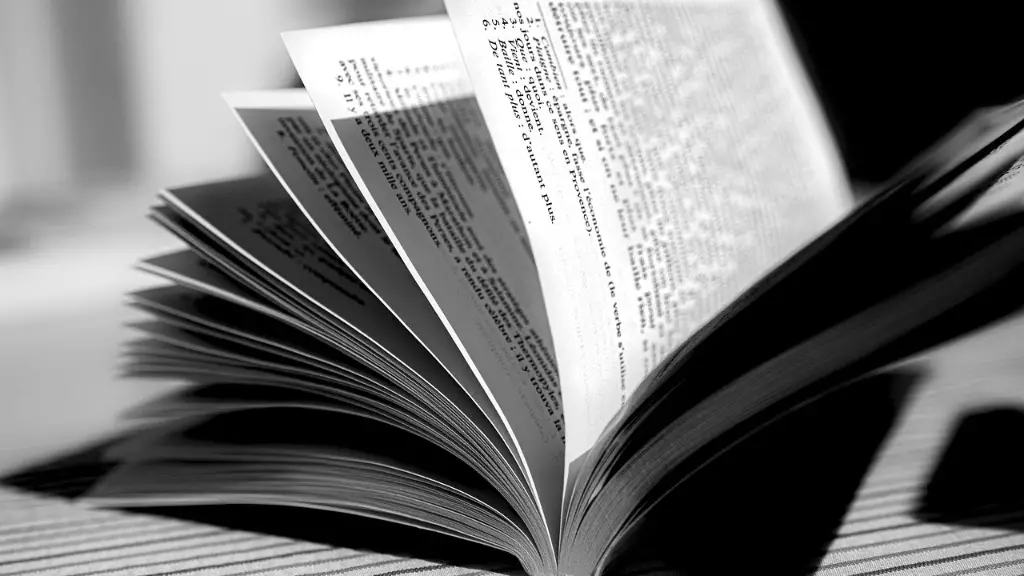Lyric poetry is a poetic form commonly found in narrative poetry, in which it is necessary to describe the experiences and emotions of the speaker. This type of poetry is often associated with the idea of expressing emotions and feelings, instead of narrating a story. Lyric poetry is characterized by its expressive language, passionate themes, focus on emotions, and use of imagery. Lyric poetry has been an integral part of literature throughout the ages and its power to captivate and evoke emotion has only grown as it has evolved.
There is no single definition of lyric poetry. It is usually defined as a type of poem that expresses the thoughts and feelings of the poet in a condensed language, in contrast to the more elaborate form of the epic poem. However, the exact definition is a matter of personal interpretation. Many people feel that lyric poems are written in a way that allows a person to experience the emotion or mood of the poem without the need for explanation.
The language of lyric poetry generally follows the conventions of poetic expression. This includes the use of meter and rhyme as well as various figures of speech and wordplay. Imagery is also a popular technique in lyric poetry and it helps to paint a vivid picture of the experience of the speaker. Additionally, lyric poetry often contains elements of fantasy, allegory, and symbolism. The use of musical or musical elements can also be found in some cases.
Many people consider lyric poetry to be one of the oldest and most important forms of poetry. It is believed to have originated from the lyrical songs of ancient Greece. During the Middle Ages, it spread throughout Europe and eventually became an important part of the philosophical, religious, and literary movements of the Renaissance. In the modern era, lyric poetry has taken on a variety of forms, including love poetry, political poetry, protest poetry, and many others.
One of the most notable aspects of lyric poetry is that it often expresses a single idea or emotion without the need for a narrative. This allows the poet to focus on their emotional reaction to an event or idea without having to worry about the logical progression of a story. In this way, lyric poetry serves as a vehicle for the expression of the poet’s innermost thoughts and feelings.
In order to fully understand what best describes lyric poetry, it is important to recognize the diversity of its forms. While some may consider it to be abstract and emotional, others may recognize it as a form of creative writing, as a way to express personal thoughts and feelings about an issue or experience. Ultimately, no single definition or description applies to all forms of lyric poetry. It is an ever-evolving art form that can take on many different shapes and forms depending on the writer’s style and personal point of view.
Exploring Different Variations Of Lyric Poetry
Lyric poetry can take many different forms, depending on the writer’s individual style and interests. Some of the most common styles of lyric poetry include love poetry, political poetry, protest poetry and nature poetry. Love poetry explores the emotions associated with love and relationships and can range in tone from joyous exuberance to heart-wrenching pain. Political poetry examines the current state of society, by discussing the political events, laws, and policies that affect our everyday lives. Protest poetry is a type of political poetry that is written in a protest against a particular issue or set of policies. Nature poetry focuses on the natural world, exploring the beauty and complexity of the environment around us.
The vast majority of lyric poems are written in a formal structure, with verses and rhymes as the primary organizing elements. A typical lyric poem may include a few stanzas, each with four to six lines. The lines often feature a rhyme scheme and meter. These devices help to create a cohesive structure and add to the impact of the poetry. Additionally, the use of figurative language, such as metaphors and similes, can also be helpful in bringing an emotional element to the poem.
Finally, it is important to recognize the nuanced differences between lyric poetry and other forms of poetry. Lyric poems are usually charactized by a focus on feeling rather than story-telling. The focus is ardent and passionate, and the language is often highly descriptive. This type of poetry tends to be fairly short, usually composed of four to five stanzas, each of which focuses on a single emotion or thought. Additionally, lyric poetry often employs a structure that uses rhyme and meter to create a compelling rhythm.
The Importance of Lyric Poetry
Lyric poetry is an important form of creative expression that can be used to explore and express a range of emotions and viewpoints. It has been an integral part of humanity’s literary tradition for centuries, and its power to captivate and evoke emotion is unparalleled. Its importance is further emphasized by its ability to convey a single thought or emotion without the need for a narrative. By being able to focus entirely on the emotion or feeling being conveyed, lyric poetry is able to tap into the depths of the human psyche and stir up powerful emotions that can be difficult to express in other ways.
It is also important to recognize that lyric poetry does not have to be confined to one particular subject or style. It can be used to explore virtually any emotion or idea, and its form can be adapted according to the needs of the poet. This makes it an incredibly versatile form of creative expression, as well as a powerful tool for exploring and expressing emotion.
Furthermore, lyric poetry can easily be adapted for different contexts, such as in performance, or for educational purposes. For example, many educators use lyric poetry to introduce topics, themes, and ideas to students, or to help them express their own thoughts and feelings. Additionally, lyric poetry is often used in performance to entertain, educate, or to explore a range of issues or ideas.
In short, lyric poetry is an incredibly powerful form of expression that has the potential to captivate and move people. Its power to explore and express emotion makes it an important part of human culture and literature, and has enabled it to remain relevant and influential throughout history.
Writing Lyric Poetry
Writing lyric poetry is a unique and personal experience. It allows an individual to explore their emotions and innermost thoughts, and to share these with others in the form of poetry. Although writing lyric poetry may seem daunting at first, it is an art form that anyone can learn to master if they have the dedication and commitment to do so.
Firstly, before beginning a lyric poem, one should have an idea or emotion that they would like to explore. This could be a feeling of love, sorrow, joy, anger, fear or any other emotion or perspective that an individual feels moved by. Once the emotion has been identified, it can then be explored in a poetic structure.
The structure of the poem is important in ensuring that the emotion is conveyed effectively. It should be organized in such a way that it paints a vivid picture and the emotion is explicitly articulated. Additionally, the use of figurative language, imagery, and rhyme schemes can help to bring the poem to life.
It is important to remember that lyric poetry is a creative art form and the poet is free to experiment with language and form. There is no single “right” way to write lyric poetry and each individual’s perspective and style of writing should be respected and celebrated.
Exploring Emotions and Perspectives Through Lyric Poetry
The power of lyric poetry is in its ability to explore emotion and perspective. Through lyric poetry, people are able to express a range of emotions and thoughts that may often be difficult to articulate in other forms. By exploring these emotions and perspectives, lyric poetry can give people greater insight into their own experiences, and provide an outlet for exploring the emotion of a situation without the reliance on explanation or dialogue. In this way, lyric poetry serves as a powerful form of creative expression for individuals who seek to explore their emotions and understand the world around them.
Additionally, lyric poetry can be a powerful way to explore a range of issues and ideas from different perspectives. It allows for the creative exploration of different cultures, beliefs, and ways of life. This can be useful for both individuals who are seeking to learn about and understand different perspectives, as well as for those who are seeking to create a bridge between themselves and different cultures.
Finally, lyric poetry can be a powerful tool for understanding and exploring the world we live in. It can open up conversations on difficult topics and foster a sense of empathy and understanding. Additionally, lyric poetry can be used to create a space for people to come together and explore a range of ideas and emotions without judgement. In this way, lyric poetry can be a powerful force for positive change and can provide an important platform for discussing difficult topics.
Conclusion
In conclusion, lyric poetry remains an important and powerful form of creative expression that has the potential to captivate and move people. It allows us to explore and express emotion, to bridge differences and understand different perspectives, and to create a safe space for discussing difficult topics. Lyric poetry is an ever-evolving art form that can take on many different shapes and forms depending on the writer’s style and personal point of view. It is an important part of humanity’s literary tradition and its ability to stir up powerful emotions makes it an invaluable form of creative expression.
